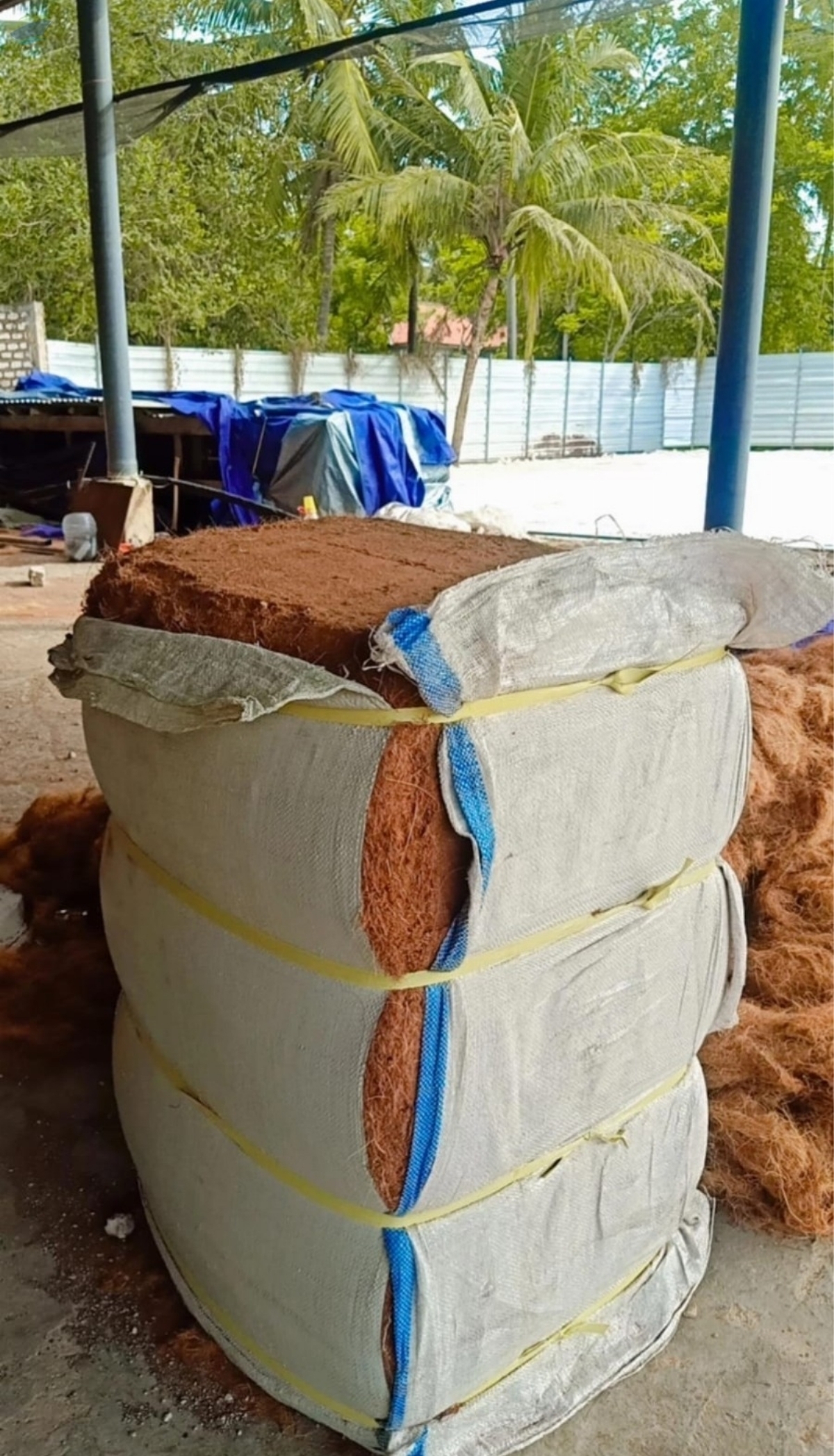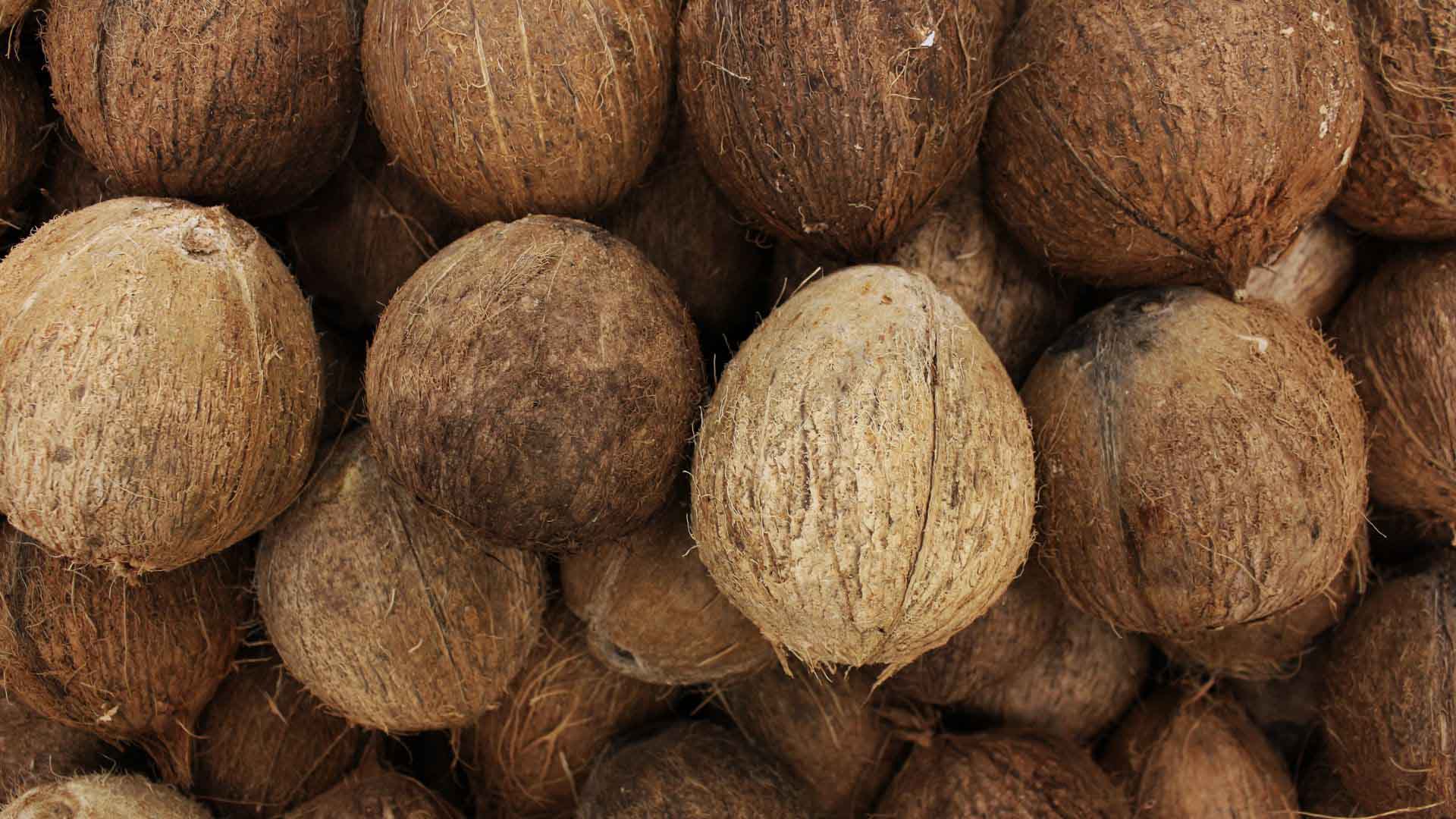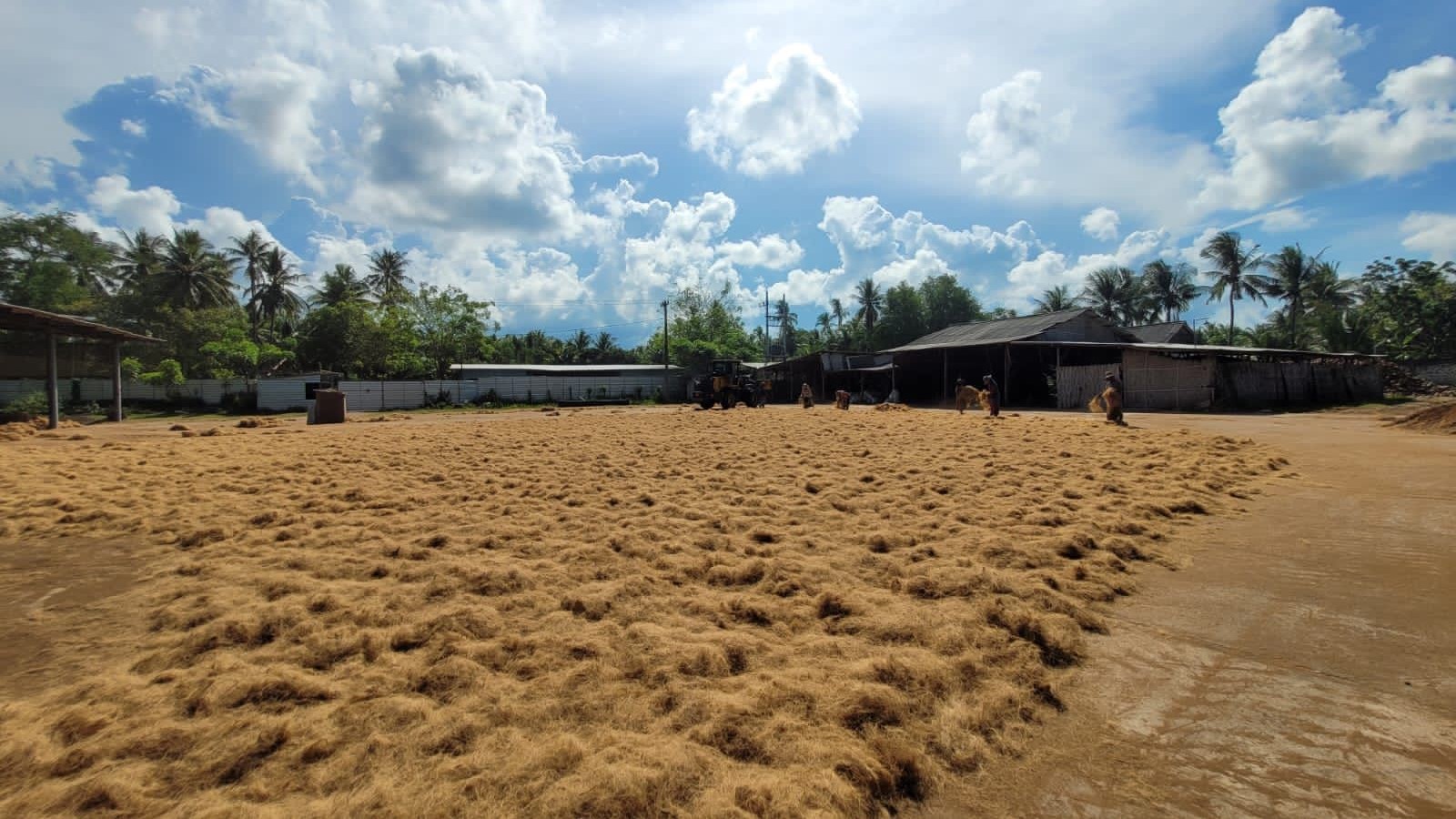pertanian.go.id – It is likely that the export of Indonesian coconut coir will expand. This is consistent with the rising demand for coconut derivatives as industrial raw materials on the global market.
Through the Agricultural Quarantine Agency, the Ministry of Agriculture (Kementan) certified 100 tons of West Java-produced coconut fiber for export to China. The total export value of coconut fiber produced by farmers in the districts of Tasikmalaya, Ciamis, and Pangandaran is IDR 396 million.
Purwo Widiarto, Head of the Tanjung Priok Agricultural Quarantine, presented PT. Nusantara Sukses Sentosa with the Phytosanitary Certificate (PC) at the Cakung DNS Depot in North Jakarta (28/4).
This transfer was conducted in accordance with the protocol to prevent the spread of Covid-19.
Purwo added that according to data from January to April of 2020, exports of coconut fiber were 1,5 thousand tons worth IDR 8 billion, with China being the main destination country. Next came clients from other worldwide markets, including Japan, South Korea, Sri Lanka, and Germany. “For the past four months, shipments of coconut fiber have continued to climb each month; this occurrence has changed the perception that fibers that were once deemed garbage can now provide foreign currency to the country,” he said.
According to Stanley Aliwarga, the authorized representative of PT. Nusantara Sukses Sentosa, coconut fiber can be utilized for a variety of purposes, including as a planting medium in Korea and Japan.
Some automobile manufacturers in Germany utilize coconut coir as a raw material for car seats. In addition, coconut coir is a component of water filters and a raw material for crafts, fuel, organic fertilizer, and briquettes. “According to China’s request, we have shipped 304 tons of coconut fiber approved by the Tanjung Priok Agricultural Quarantine and roughly IDR 1.2 billion in rupiah since the beginning of this year,” he added.
Based on data from the agricultural quarantine automation system, China received 5,400 tons of coconut fiber in 100 shipments during 2019. Next are exports to Japan, which have a delivery frequency of 16 and a volume of 972 tons. This was followed by the destination country, South Korea, with 29 shipments totaling 419 tonnes. Then, 164 tons with a volume of 164 tons were carried twice to Thailand. North Korea then followed with a shipment of 18 tons. In addition, two shipments totaling six tons were transported twice to Sri Lanka. In addition, shipments to South Africa with a volume of 2 tons and Germany with a volume of 0.25 kg each shipment.
Separately, Ali Jamil, the head of the Agricultural Quarantine Agency, stated that agricultural activity in Indonesia must continue despite the coronavirus outbreak. In an effort to help the economy, this is in conformity with the directives of the Minister of Agriculture (Syahrul Yasin Limpo, in red). “The agriculture industry was able to continue producing, including the processing of coconut fiber, despite the weak economy. This is also consistent with the sustained high demand for agricultural products from Indonesia notwithstanding the Covid-19 restrictions “added Jamil.
In addition, his party will continue to protect the health and safety of agricultural products and provide export facilitation services for agricultural products to meet export market demand, even during a pandemic. “We are prepared to ensure that export products are competitive, smooth, healthy, and safe. And vice versa, agricultural products entering the country are healthy, safe, and consumable “Jamil concluded his remarks.



